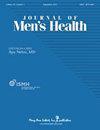大学生运动员人格特征对新冠肺炎预防健康行为的差异分析
IF 0.6
4区 医学
Q4 Medicine
引用次数: 0
摘要
背景:由于COVID-19与其他传染病相比具有独特性,需要强调各种应对措施的必要性,并且考虑到大多数运动员在比赛中不允许戴口罩,因此需要对这些个体进行更严格的COVID-19预防健康行为。因此,为了获得可用于提高大学生运动员COVID-19预防健康行为参与度的数据,本研究根据人格类型调查了COVID-19预防健康行为的差异。材料与方法:基于大五人格理论,对新冠肺炎预防健康行为与人格特征的关系进行检验。通过问卷调查的方式收集了65名参与者(男性53人,女性12人)的数据。结果:预防健康行为在性别、年级、运动类型、职业等人口统计学特征上无显著差异。一种人格类型的最高得分是尽责性,而那些尽责性、外向性、神经质和开放性水平较高的人在COVID-19的预防性健康行为方面得分较高。有趣的是,那些开放度低的人在COVID-19的预防性健康行为方面也报告了更高的分数。结论:本研究结果可为限制新冠病毒在高校运动员中的传播、促进预防健康行为提供重要信息。本文章由计算机程序翻译,如有差异,请以英文原文为准。
An Analysis of Difference in Preventive Health Behaviors for COVID-19 by Personality Characteristics in College Athletes
Background: Dueto the uniqueness of COVID-19 compared with other infectious diseases, the need for various countermeasures against it should be emphasized, and considering that most athletes are not allowed to wear masks during competitions, stricter preventive health behaviors for COVID-19 are required among these individuals. Therefore, in an attempt to yield data that may be used to increase the engagement in preventive health behaviors for COVID-19 among college athletes, this study investigated the differences in preventive health behaviors for COVID-19 according to personality types. Material and Methods: Based on the Big Five personality theory, the relationship between preventive health behaviors for COVID-19 and personality characteristics was tested. Data were collected from 65 participants (male: n = 53, female: n = 12) through a questionnaire survey. Results: The results showed no differences in preventive health behaviors according to demographic characteristics such as sex, grade, sports type, and career. The highest score for a personality type was for conscientiousness, and those with a higher level of conscientiousness, extraversion, neuroticism, and openness reported higher scores for preventive health behavior for COVID-19. Interestingly, those with low openness also reported higher scores for preventive health behaviors for COVID-19. Conclusions: These results are expected to be used as important information to restrict the spread of COVID-19 and promote preventive health behaviors among college athletes.
求助全文
通过发布文献求助,成功后即可免费获取论文全文。
去求助
来源期刊

Journal of Men's Health
Medicine-Urology
CiteScore
0.70
自引率
28.60%
发文量
153
审稿时长
10 weeks
期刊介绍:
JOMH is an international, peer-reviewed, open access journal. JOMH publishes cutting-edge advances in a wide range of diseases and conditions, including diagnostic procedures, therapeutic management strategies, and innovative clinical research in gender-based biology. It also addresses sexual disparities in health, life expectancy, lifestyle and behaviors and so on. Scientists are encouraged to publish their experimental, theoretical, and descriptive studies and observations in as much detail as possible.
 求助内容:
求助内容: 应助结果提醒方式:
应助结果提醒方式:


